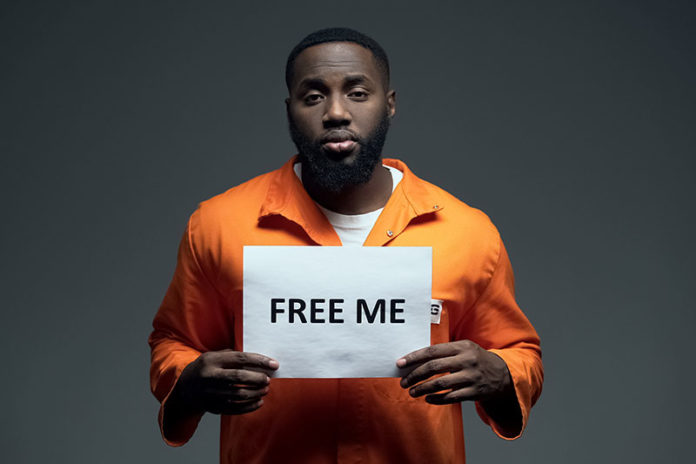In Wonderland, Humpty Dumpty told Alice that whenever he used a word, “it means just what I choose it to mean – neither more nor less.” In today’s political discourse, the problem is not so much that people attach their own subjective meaning to words; the problem is words and phrases no longer have any meaning attached to them. Words and phrases have become untethered from objective reality. One of the latest victims of this craziness is the “presumption of innocence.”
Even though the term “presumption of innocence” does not appear in our Constitution, it is among the most significant legal principles undergirding our constitutional republic. It has been one of the pillars of western civilization going back to ancient Greek and Roman cultures, and is a key element of British common law we inherited from our prior colonial bosses.
While the phrases “presumption of innocence” and “proof beyond a reasonable doubt” may flow easily from the lips of most citizens, increasingly there is little or no understanding behind the words; and no patience to engage in the process needed to ensure evidence of guilt overcomes the presumption of innocence. To a large degree, this troubling situation is born of the deeply polarized political environment that has swept over our society in recent years; threatening to unravel a legal system that has long served to protect individual liberty against abuse by both government and private actors.
Herd mentality that presumes an opponent guilty without concern for the evidence, or that presumes a supporter innocent regardless of the evidence, has become a hallmark of contemporary public policy debate. It was not always so.
Just two generations ago, for example, when President Richard Nixon faced a political fight to the death over his Administration’s Watergate transgressions, there were vicious personal charges levelled against him. Ultimately, however, the “better angels of our nature” (as Abraham Lincoln eloquently put it) prevailed in the Congress and in our courts and triumphed over the poison of partisan division. Contrast that episode with the manner by which conservative jurist Clarence Thomas was eviscerated by the Left during his 1991 confirmation hearings.
Things have only accelerated downward since then.
In today’s toxic atmosphere, the merest hint of transgression becomes not a predicate for investigation or debate, but a clarion call to convict and destroy. At no time in modern history has this scorched earth strategy been more starkly displayed than during the 2018 confirmation hearings for Supreme Court nominee Brett Kavanaugh.
In defending against the sordid accusations of sexual misconduct levelled against him – charges that were devoid of any substantive evidence — Kavanaugh was never afforded the “presumption of innocence” to which he was entitled. In its place was constructed a “presumption of truth” that clothed his accuser, and a “presumption of guilt” hung around his neck (which remains to this day).
While this troubling scenario may be more noticeably and constantly on display by those on the Left, whose adherents take as a point of pride their all-consuming hatred for Donald Trump, many conservatives have fallen prey to this reason-crippling virus.
Less than two years after the Kavanaugh spectacle, Joe Biden finds himself on the hot seat, facing a nearly two-decade old charge of sexual misconduct by a former Senate staffer. Republicans are absolutely right in charging Biden’s defenders with hypocrisy in failing to afford the former vice president’s accuser the same “presumption of truth” granted Kavanaugh’s accuser. However, when Biden’s Republican opponents rush to defend his accuser and label the former vice president “guilty,” they fall into the same trap for which they criticize their opposite numbers — jumping to conclusions based not on principled notions of due process and reasoned debate, but on partisan status and strident ideology.
Navigating crucial disagreements involving politics, law and social policy is essential if we are to maintain a free but ordered society. In today’s hyper partisan environment, however, this becomes virtually impossible. The ultimate victim in this troubling situation is no single candidate or election, but something far more valuable. What is at risk is the ability as a free society to protect any one of us — Democrat, Republican or Independent — from abusive actions by government and private actors alike.































